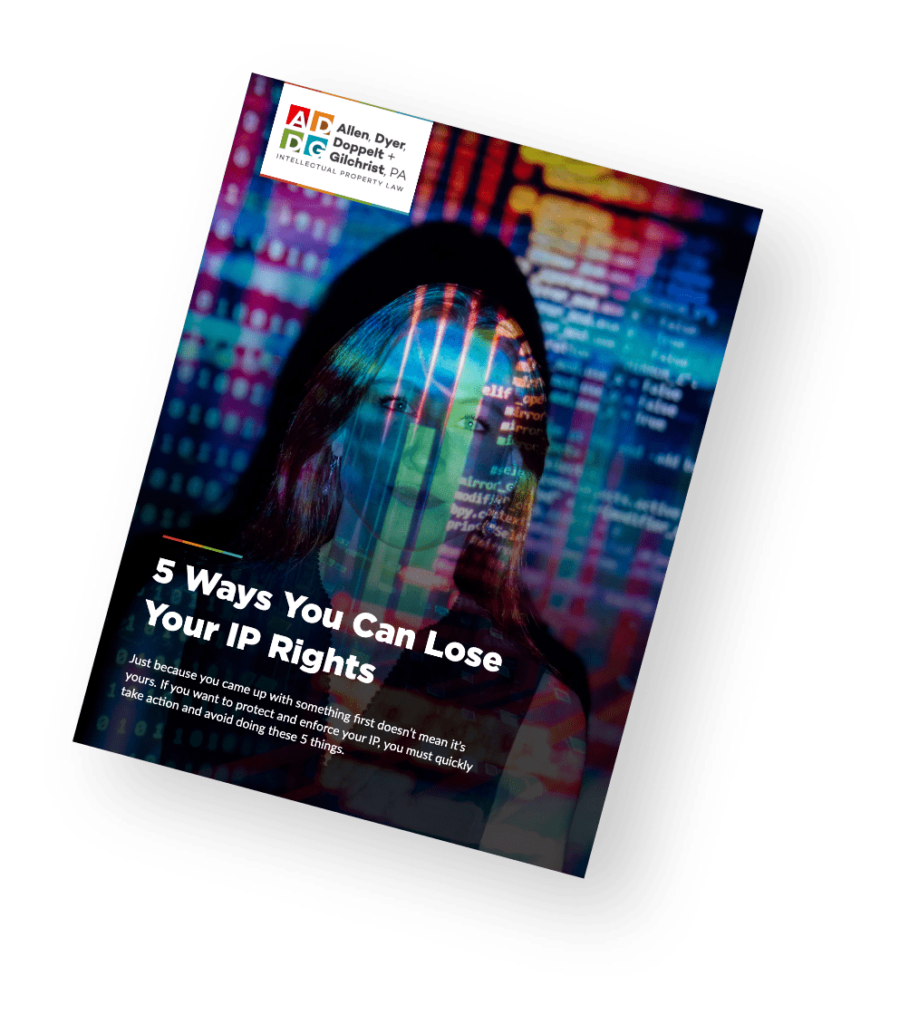As a business attorney, your clients may have important publications, presentations, videos, software, or other works that give them a competitive edge. Knowing a few basic points about copyrights can help you identify these important works for your clients so that they may be properly protected, and help your client avoid potential issues with the copyrights of others. These points are: (1) identification; (2) protection; and (3) infringement.
1. Identifying Copyrightable Works
Copyright protects original works fixed in a tangible medium, including literary, musical, dramatic, and artistic works. Copyrighted works can be videos, software, articles/blogs, social media posts, books, music scores/recordings, etc. For a business, this can include published articles, marketing materials, presentations, manuals, software, and many other items created by the business.
Common law copyrights arise automatically upon creation of a work – no registration is required. Copyright does not protect facts, ideas, processes, or methods; rather, it protects the original expression of those ideas in the given work. So, for example, basic measurements taken in an experiment may not be copyrightable, but an article summarizing these measurements and their importance would be copyrightable.
Takeaway: help your clients identify important copyrightable works that provide value to the business
2. Protecting Copyright Works
While not required, registration with the U.S. Copyright Office provides several benefits. First, this establishes a public record of the copyrighted work and its ownership. Moreover, registration is a prerequisite for bringing a copyright infringement action in federal courts. Plus, registration prior to the act of infringement provides the possibility of statutory damages and attorney’s fees in such a lawsuit.
Registration may be worthwhile for key works such as software, music, films, books, and visual art where the works provide a competitive advantage or were costly to create. On the other hand, it is generally not cost-effective for minor works like social media posts, emails, or everyday business materials to be registered. Our copyright attorneys can help your clients strategically register their important works.
One other point: properly marking registered and unregistered works with © or “Copyright [Year] [Owner]” can be helpful to deter others from infringing copyrighted works.
Takeaway: check copyright markings and connect clients with copyright professionals to register important works
3. Avoiding Copyright Infringement
Copyright infringement can carry significant civil (and in some cases criminal) penalties. In the fast-paced business world, clients may sometimes inadvertently utilize unlicensed copyrighted content in marketing, software, etc. Employee education and keeping up with content licenses are important steps in avoiding such inadvertent infringement. For more information on this, see Tips for Avoiding Copyright Infringement.
If your client is accused of infringement, it is important to quickly connect them with a copyright litigation attorney. Infringement allegations can disrupt business and cause reputational damage. Copyright litigation counsel can mitigate risk and evaluate whether defenses like fair use may apply.
Takeaway: implement safeguards to help avoid the use of unlicensed content in business materials
Conclusion
As a business attorney, you are a trusted advisor to your clients and often the first touch point for all of their legal matters, whether those matters are “in your wheelhouse” or not. At ADD+G, our experienced team of copyright attorneys is here to partner with you to answer any questions and make sure your clients’ most valuable works are protected.
Contact us today!
About the Author
John Woodson is a Registered Patent Attorney who practices in the area of patent prosecution, patent infringement studies, and client counseling.

Share This



